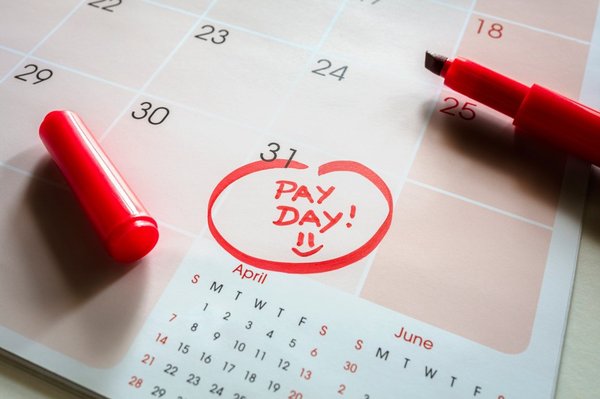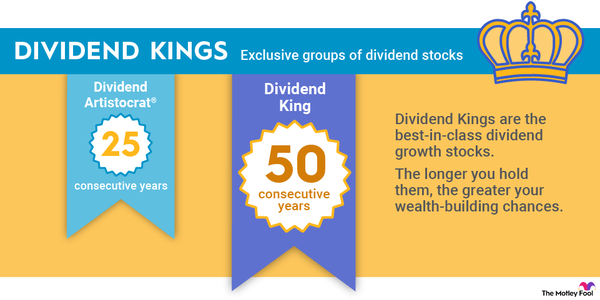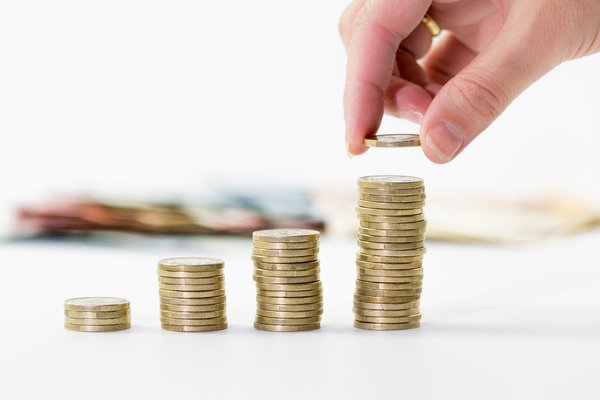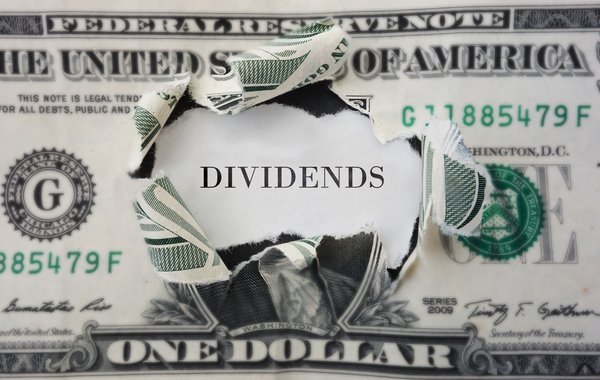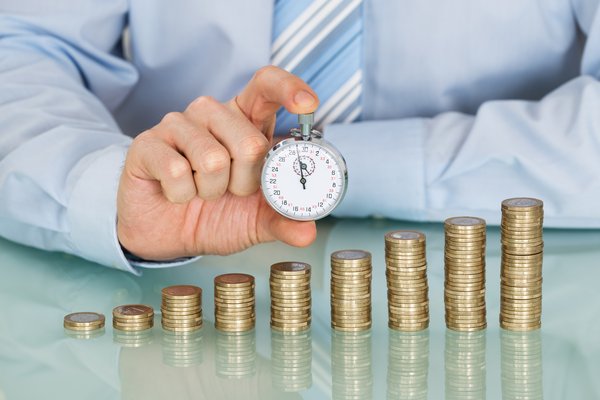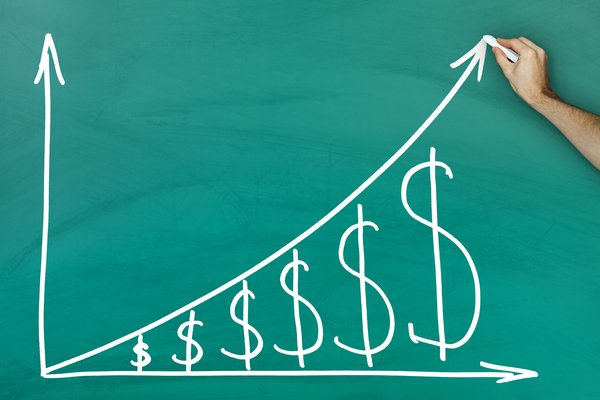Owning dividend-paying stocks is a great way to build long-term wealth. You can earn passive income from the dividends and benefit from capital appreciation as stocks gain in value. Historically, stocks that pay dividends have outperformed those that don't.
By knowing how dividends work, you can benefit from the wealth-creating capabilities of dividends. Here's what you need to know about dividend-paying stocks.
What is a dividend?
What is a dividend?
A dividend is a distribution of a portion of a company's earnings.
Companies can choose to regularly reward their shareholders by paying dividends, usually in cash, although sometimes in stock. Companies often choose to pay dividends when they consistently generate more profits than management can efficiently reinvest in the business.
Companies typically pay one of three types of dividends:
- Regular dividend: This type is the most common. Companies that pay a regular dividend generally pay them consistently over time, in part by setting the dividend amount to ensure that it's sustainable in both good and bad years. Regular dividends are usually paid quarterly, although they can also be paid monthly, biannually, or annually.
- Special dividend: This type of dividend is a one-time payment. A company might choose to pay a special dividend after a string of highly profitable quarters or because it sold an asset and didn't have an immediate use for the money. Some companies pay special dividends because they have accumulated cash over time that the business doesn't need to sustain its operations. Companies often publicly announce special dividends to tell the market they plan to send cash to shareholders but that shareholders should not expect the payment to become a recurring event.
- Variable dividend: Companies that produce commodities such as oil and gas, timber, and mined materials sometimes opt to pay a variable dividend in addition to regular dividend payments. Variable dividends tend to be paid at fairly consistent intervals but vary in amount depending on a company's earnings in the previous quarter or year.
Investors evaluate companies that pay dividends on the value of annual dividends paid relative to the price of the company's stock, which is known as the company's dividend yield. A stock that pays yearly dividends of $0.50 per share and trades for $10 per share has a dividend yield of 5%.
Dividend yields enable investors to quickly gauge how much they could earn in dividends by investing a certain amount of money in a stock. If a stock has a yield of 5%, you know you would earn $5 on every $100 invested, $50 on every $1,000 invested, and so on. A dividend yield also allows you to compare a stock to other income investments such as bank CDs or bonds.
Why do companies pay dividends?
Why do companies pay dividends?
Not all companies pay dividends, but many do. Roughly 75% of companies in the S&P 500 (SNPINDEX:^GSPC) pay a regular dividend.
Larger and slower-growing businesses are more likely to pay dividends to their investors than smaller, faster-growing companies. Growing businesses need to retain their earnings to continue to expand, while large, established companies are already profitable and may generate more profits than they need to retain. Most companies with plenty of available cash choose to pay a dividend.
When the dividend is dependable, this makes those companies a more appealing investment for people seeking passive income, such as retirees. That can help increase the value of their stock because income investors tend to value stocks based on their income yield rather than other metrics.
Dividends Per Share
Dividend-paying companies
Dividend-paying companies
Most commonly, dividend-paying stocks are mature companies, meaning they're profitable and growing slower, or they operate in mature industries. Think of slower-growing sectors such as industrials, energy, and consumer staples. That's because the key to a company's ability to pay a dividend is its ability to generate more cash than it needs to grow.
Meanwhile, certain companies have to pay dividends. For example, the IRS requires that real estate investment trusts (REITs) distribute 90% of their taxable income to shareholders via dividend payments. Likewise, master limited partnerships (MLPs) have a similar cash distribution requirement. These companies tend to make great income stocks.
How are dividend amounts determined?
How are dividend amounts determined?
Companies that pay dividends tend to develop a dividend policy over time, which guides how much to pay out to shareholders. The amount of a company's dividend each quarter is voted on and must be approved by its board of directors.
When are dividends paid?
When are dividends paid?
Most companies that pay a regular dividend do so quarterly, although some pay monthly, biannually, or annually. After the board of directors agrees on the amount of a dividend payment, the company officially declares -- announces -- its next dividend. This day is known as the declaration date.
On the declaration date, the company also indicates a date, known as the record date, on which you must be a shareholder in the company to receive the declared dividend payment. The establishment of the record date, in turn, sets the ex-dividend date, which is the first day that shareholders purchasing the stock are not eligible to receive the declared dividend. The ex-dividend date occurs one business day before the record date.
The payment date is the date on which the dividend payment is actually disbursed to shareholders. If a shareholder is receiving a dividend by mail, dividend checks are mailed on the payment date.
Fiscal Quarter
How are dividends taxed?
How are dividends taxed?
The IRS taxes most dividend income. The dividend tax rate depends on the type of dividend, e.g., a qualified dividend, nonqualified dividend, or a return of capital, an investor's income level, and the account in which they hold the investment.
The IRS taxes dividends for stocks held directly or in a regular brokerage account. A qualified dividend means it qualifies for the lower long-term capital gains tax rates. For 2022, those rates are 0%, 15%, and 20%, depending on your income level. Meanwhile, the IRS taxes nonqualified dividends, also known as ordinary dividends, at your ordinary tax rate, which ranges from 10% to 37%.
However, not all dividends are taxable. For example, a dividend marked as a return of capital isn't taxed until an investor sells the underlying investment. Meanwhile, if you own the dividend stock in a tax-advantaged account, you are not taxed on dividends received. These are some of the account types that exempt you from paying taxes on dividends, provided you do not withdraw money from the account:
- Traditional IRA, or individual retirement account.
- Roth IRA.
- Simplified Employee Pension (SEP) IRA.
- 401(k) plan.
- Coverdell Education Savings Account (ESA).
- 529 plan.
Dividend examples
Dividend examples
Here are some examples of different types of dividends:
Realty Income (O 1.46%), a REIT that owns single-tenant retail and industrial buildings, pays a monthly dividend. It has increased that payout for 29 consecutive years and more than 4% per year on average.
In 2022 (the last full year prior to this writing), the REIT paid $2.967 per share in distributions. Of this total, $2.79 was "ordinary" dividends and $0.18 per share was capital gains.
Unless an investor held shares in a tax-advantaged account, the bulk of these distributions would be taxed as ordinary income, meaning the same tax rate you pay on the last dollar you earn, and not at the lower rate (15% for most American taxpayers) paid on qualified dividends.
As a more complicated example, oil and gas producer Devon Energy (DVN -0.46%) has paid several types of dividends in recent years, and this example from 2020 and 2021 still is relevant:
- The company pays a regular quarterly dividend of $0.11 per share. It's set at that rate because it's sustainable for the company to maintain even when energy prices are low.
- Devon paid a special dividend of $100 million, or $0.26 per share, to its investors in late 2020 after a $300 million sale of oil and gas assets.
- The energy company launched an industry-first variable dividend program in early 2021. It paid a total of $1.53 per share of variable dividends in 2021.
Dividend payouts can be routine or circumstance-specific. A company's aim in making dividend payments is usually the same -- to return to shareholders any excess profits that are not needed for the business.
Related investing topics
The bottom line
The bottom line
A dividend is a wonderful thing. Whether as a source of income today or in the future, or for more money you can reinvest, understanding what you're getting, when, and how much is invaluable. We hope you can use what you learned from this article can help you on your journey to being smarter, happier, and richer.







